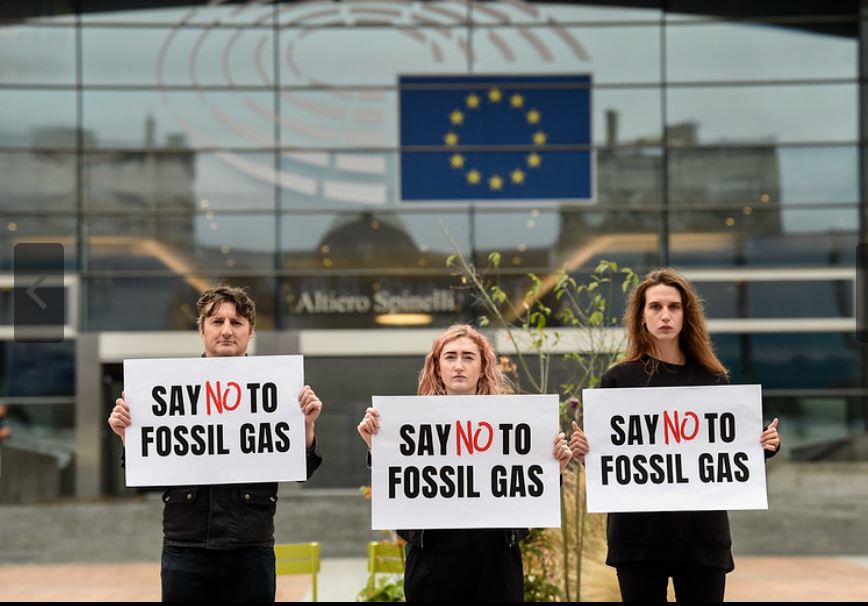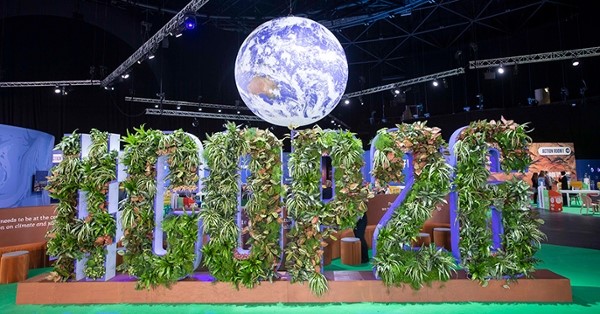
By Atayi Babs
As negotiations hit a crescendo at the ongoing #COP26, The European Union Commission today gave its backing to 30 gas projects worth €13 billion. Campaigners at the COP are livid and have vowed to resist this move which they described as “a slap in the face”.
With international climate talks about to end in Glasgow – where Commission President Ursula von der Leyen said “it is our duty to act now” – the new edition of the Commission’s list of priority energy infrastructure developments sees EU backing given to mega-projects that lock Europe into fossil fuel dependency and exacerbate climate change.
From less gas to more gas?
This fifth edition of the “projects of common interest” (PCI) list lends EU support to controversial gas projects like the EastMed pipeline, the Baltic Pipe, Gdansk LNG, and the Cyprus2EU LNG terminal. Projects featured on the list gain fast-track permitting privileges and the opportunity to receive EU funding via its Connecting Europe Facility.
The Commission had promised to deliver a list in line with the European Green Deal with less room for gas projects. Yet rather than stopping subsidies for fossil fuels, this fresh list will see renewed support and taxpayers’ money given to unnecessary and climate-damaging fossil fuels for the next two years and potentially much longer.
The list also comes as Europe faces a gas price crisis, caused in part by over-reliance on unreliable gas, which is expected to tip millions of people into fuel poverty this winter.
Sam Jinadu, Head of Programmes at the Climate and Sustainable Development Network (CSDevNet) says “this new list of 30 priority energy projects worth €13 billion poses a huge danger to climate and people all around the world. This has gone beyond a slap on the wrist to a slap on the face, and it must be resisted by all with good conscience,” Sam added.
Sam is equally worried about the implications of this move for Africa – I shudder at the grim possibility of African nations toeing this path of shame if this move is not reversed, he said.
Colin Roche, climate justice coordinator for Friends of the Earth Europe sees this list as “a dangerous and dirty disgrace. Continuing to back fossil gas is completely out of step with the reality of the climate emergency already devastating lives around the world.”
Gas is holding people hostage to fuel poverty this winter – building yet more gas pipelines will only exacerbate the problem. Billions of euros have already been wasted when this cash is needed now for rolling out clean, renewable solutions and efficient warm buildings,” Roche warned.

“We’re in the middle of a gas crisis and UN climate talks, yet the Commission’s ‘priority’ today is to increase reliance on fossil gas,” Frida Kieninger, campaign officer at Food & Water Action said.
“These mega gas projects serve the interests of fossil fuel corporations, not the common interest of Europeans. The whole process has lacked transparency and independent oversight, with the fossil fuel industry even given a core role in the decision,” Frida added.
Fossil lobbyists at work
An anonymous source at the EU Commission confirmed that the list is still a proposal by the commission, requiring endorsement by member states. “MEPs & Council have the option to reject the entire list (which includes other good electricity projects). However, four previous lists like this were never rejected.
The PCI list process has been challenged by NGOs as lacking in transparency – with multiple EU Ombudsman enquiries questioning the Commission’s decision-making process and an influential role for gas transmission companies in drawing up the list.
The Trans-European Energy Networks (TEN-E) regulation which governs the PCI list, is currently being revised – prompted in part by the inclusion of controversial gas projects in the Commission’s previous 2019 PCI list.
The Commission framed its proposed reforms as a way to exclude gas projects from future PCI lists and align with the goals of the EU Green Deal. Yet both the EU Council and Parliament have proposed loopholes that would still leave considerable room for gas projects on future editions of the priority list.
Earlier this year, the International Energy Agency found that to have a chance of keeping global warming below 1.5 degrees, no new fossil investments must take place, and existing use of fossil fuels must be phased out.
Since 2013, the EU has poured nearly €5 billion of taxpayers’ money into expanding Europe’s network of gas pipelines and import terminals. 40 per cent, or €1.5 billion, of the Connecting Europe Facility’s funds, have been awarded to fossil gas projects.











